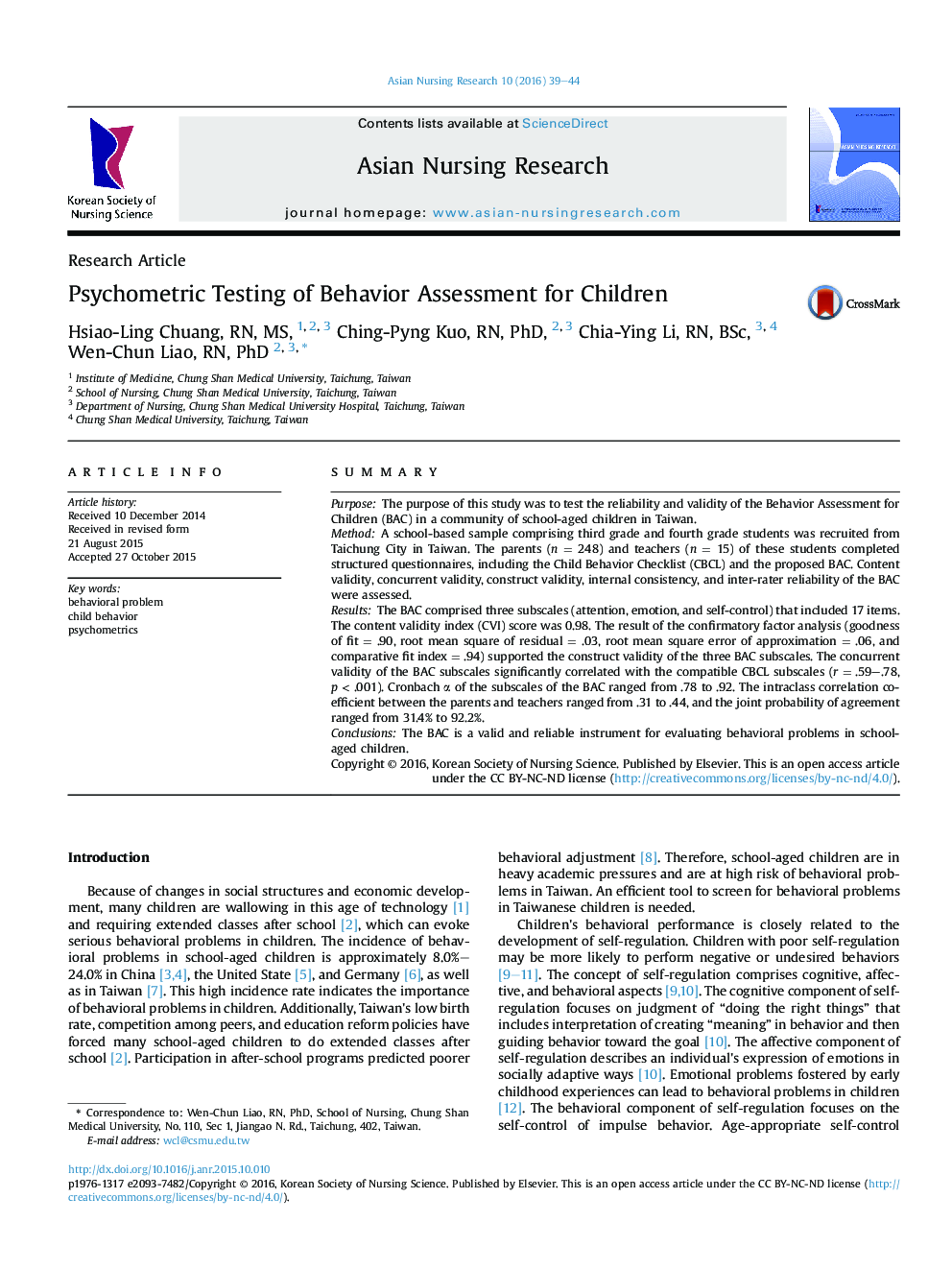| Article ID | Journal | Published Year | Pages | File Type |
|---|---|---|---|---|
| 2644910 | Asian Nursing Research | 2016 | 6 Pages |
SummaryPurposeThe purpose of this study was to test the reliability and validity of the Behavior Assessment for Children (BAC) in a community of school-aged children in Taiwan.MethodA school-based sample comprising third grade and fourth grade students was recruited from Taichung City in Taiwan. The parents (n = 248) and teachers (n = 15) of these students completed structured questionnaires, including the Child Behavior Checklist (CBCL) and the proposed BAC. Content validity, concurrent validity, construct validity, internal consistency, and inter-rater reliability of the BAC were assessed.ResultsThe BAC comprised three subscales (attention, emotion, and self-control) that included 17 items. The content validity index (CVI) score was 0.98. The result of the confirmatory factor analysis (goodness of fit = .90, root mean square of residual = .03, root mean square error of approximation = .06, and comparative fit index = .94) supported the construct validity of the three BAC subscales. The concurrent validity of the BAC subscales significantly correlated with the compatible CBCL subscales (r = .59–.78, p < .001). Cronbach α of the subscales of the BAC ranged from .78 to .92. The intraclass correlation coefficient between the parents and teachers ranged from .31 to .44, and the joint probability of agreement ranged from 31.4% to 92.2%.ConclusionsThe BAC is a valid and reliable instrument for evaluating behavioral problems in school-aged children.
